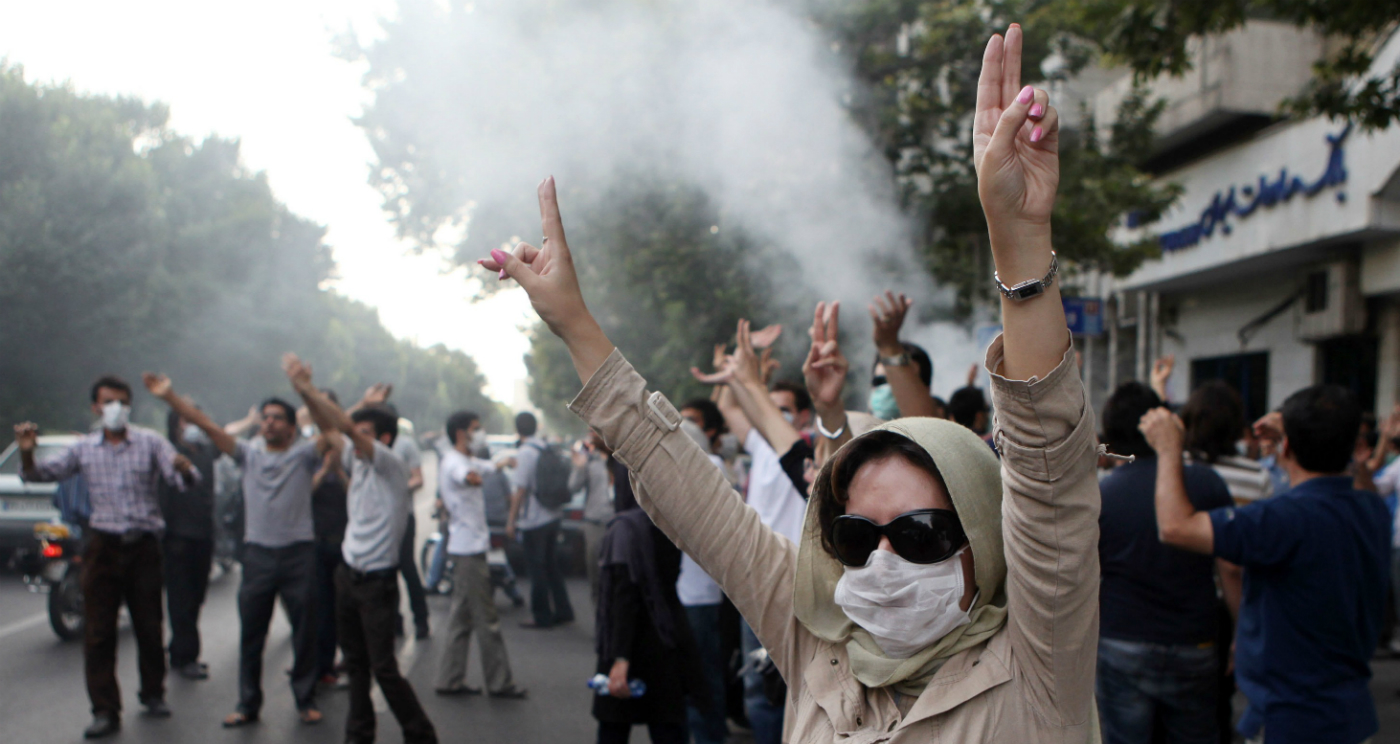Tehran’s proxy wars: how Iran spends its billions
Critics say vast amounts of oil revenue goes overseas to fund foreign conflicts

A free daily email with the biggest news stories of the day – and the best features from TheWeek.com
You are now subscribed
Your newsletter sign-up was successful
Iran is facing its worst civil unrest in almost a decade, with at least 22 people killed in street demonstrations that began in a reaction to tough economic times.
Iranians were promised in 2015 that the easing of sanctions would make their lives easier, with oil revenue restored after years of embargo. But there has been no recovery. In fact, according to the BBC’s Persian service, the average Iranian is now 15% worse off than they were ten years ago.
So, where is the oil money going?
The Week
Escape your echo chamber. Get the facts behind the news, plus analysis from multiple perspectives.

Sign up for The Week's Free Newsletters
From our morning news briefing to a weekly Good News Newsletter, get the best of The Week delivered directly to your inbox.
From our morning news briefing to a weekly Good News Newsletter, get the best of The Week delivered directly to your inbox.
Some protesters want Tehran to stop spending what they say is “vast amounts of money” on supporting the Syrian regime of President Bashar al-Assad, the Lebanese Shia group Hezbollah and the Palestinian Hamas movement, Deutsche Welle reports.
In an interview with The Times of Israel, Israeli government minister Yuval Steinitz says that Iran spends $1bn (£740m) each year just on Hezbollah.
Left-wing Israeli newspaper Haaretz quotes unnamed “Western intelligence sources” who claim that hardliners want to “capitalise” on money spent during Syria’s civil war to “entrench [Iran’s] presence by building a permanent air base and docking facilities on the Mediterranean coast”.
This would cost “at least hundreds of millions, if not billions”, the newspaper says, money that factions close to Iranian President Hassan Rouhani want to reserve for “improving infrastructure and providing jobs at home”.
A free daily email with the biggest news stories of the day – and the best features from TheWeek.com
According to Haaretz, Iran’s state-owned banks set up credit lines totalling $4.6bn (£3.4bn) for the Syrian regime in 2013 and 2015. It has paid a monthly wage to around 50,000 militia fighters, and has supplied arms “daily”, and military “advisers”.
Estimates of Iran’s total funding for Hezbollah in Lebanon vary from $60m (£44m) to $1bn a year, the newspaper adds, while Israeli intelligence estimates Iranian backing to Islamic groups in Gaza adds up to some $100m (£74m) annually.
-
 Is the US in a hiring recession?
Is the US in a hiring recession?Today's Big Question The economy is growing. Job openings are not.
-
 How to juggle saving and paying off debt
How to juggle saving and paying off debtthe explainer Putting money aside while also considering what you owe to others can be a tricky balancing act
-
 Hong Kong jails democracy advocate Jimmy Lai
Hong Kong jails democracy advocate Jimmy LaiSpeed Read The former media tycoon was sentenced to 20 years in prison
-
 Epstein files topple law CEO, roil UK government
Epstein files topple law CEO, roil UK governmentSpeed Read Peter Mandelson, Britain’s former ambassador to the US, is caught up in the scandal
-
 Iran and US prepare to meet after skirmishes
Iran and US prepare to meet after skirmishesSpeed Read The incident comes amid heightened tensions in the Middle East
-
 Which way will Trump go on Iran?
Which way will Trump go on Iran?Today’s Big Question Diplomatic talks set to be held in Turkey on Friday, but failure to reach an agreement could have ‘terrible’ global ramifications
-
 Syria’s Kurds: abandoned by their US ally
Syria’s Kurds: abandoned by their US allyTalking Point Ahmed al-Sharaa’s lightning offensive against Syrian Kurdistan belies his promise to respect the country’s ethnic minorities
-
 Israel retrieves final hostage’s body from Gaza
Israel retrieves final hostage’s body from GazaSpeed Read The 24-year-old police officer was killed during the initial Hamas attack
-
 China’s Xi targets top general in growing purge
China’s Xi targets top general in growing purgeSpeed Read Zhang Youxia is being investigated over ‘grave violations’ of the law
-
 Syria’s Islamic State problem
Syria’s Islamic State problemIn The Spotlight Fragile security in prison camps leads to escape of IS fighters
-
 Panama and Canada are negotiating over a crucial copper mine
Panama and Canada are negotiating over a crucial copper mineIn the Spotlight Panama is set to make a final decision on the mine this summer